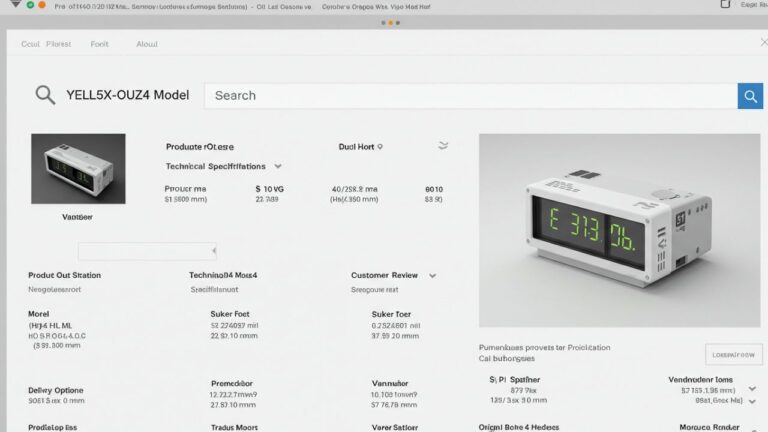
eCrypto1.com Crypto Security
Introduction
eCrypto1.com Crypto Security focuses on protecting digital assets from cyber threats, fraud, and hacking attempts. Cryptocurrency holders need strong security measures to prevent financial losses.
Blockchain technology offers decentralized security, but hackers constantly develop new strategies to exploit vulnerabilities. Traders, investors, and crypto enthusiasts must take proactive steps to secure their holdings. eCrypto1.com provides insights into protecting wallets, securing transactions, and avoiding common scams. This guide covers essential strategies for keeping cryptocurrency safe.
Table of Contents
- Understanding eCrypto1.com Crypto Security
- Why Crypto Security Matters More Than Ever
- Common Threats in the Cryptocurrency Space
- Best Practices for Securing Digital Assets
- Choosing the Right Crypto Wallet for Maximum Security
- The Importance of Private Keys and Seed Phrases
- Multi-Factor Authentication: Strengthening Crypto Security
- How to Protect Crypto from Phishing Attacks
- Safeguarding Your Cryptocurrency on Exchanges
- The Role of Cold Wallets in Crypto Security
- Identifying and Avoiding Crypto Scams
- The Impact of Smart Contracts on Blockchain Security
- How eCrypto1.com Helps Enhance Crypto Security
- Future Trends in Crypto Security and Risk Prevention
- FAQs
Understanding eCrypto1.com Crypto Security
eCrypto1.com Crypto Security provides valuable information on protecting digital currencies from theft and fraud. The platform educates users on best security practices and risk management strategies.
Cryptocurrency transactions remain irreversible, making asset protection essential. Hackers use phishing, malware, and social engineering to steal funds. Strong security measures reduce the chances of losing digital assets to cybercriminals.
Why Crypto Security Matters More Than Ever
The rise in cryptocurrency adoption attracts cybercriminals seeking to exploit weak security systems. Scams, hacks, and fraud continue increasing, affecting traders and investors worldwide.
Securing digital assets prevents unauthorized access, reduces fraud risks, and ensures safe transactions. Users who follow proper security protocols maintain full control over their funds without relying on third parties.
Common Threats in the Cryptocurrency Space
Crypto users face multiple security threats daily. Understanding these risks helps prevent financial losses. Some common threats include:
- Phishing Attacks – Scammers trick users into revealing private keys or passwords.
- Exchange Hacks – Cybercriminals target centralized exchanges to steal funds.
- Wallet Exploits – Vulnerabilities in software wallets allow unauthorized access.
- Fake Investment Schemes – Scammers promise high returns but disappear with funds.
- Malware and Keyloggers – Malicious software captures login details and private keys.
Avoiding these threats requires a proactive security approach.
Best Practices for Securing Digital Assets
Crypto security depends on following strong security habits. Users should:
- Store private keys offline to prevent unauthorized access.
- Enable two-factor authentication on all crypto-related accounts.
- Avoid sharing wallet information or login credentials.
- Regularly update software wallets and antivirus programs.
- Use strong, unique passwords for each account.
Implementing these measures enhances digital asset protection.
Choosing the Right Crypto Wallet for Maximum Security
Crypto wallets store private keys and facilitate transactions. Different types offer varying levels of security.
- Hardware Wallets – Physical devices that store private keys offline, reducing hacking risks.
- Software Wallets – Applications for desktops or mobile devices, providing convenient access.
- Paper Wallets – Printed copies of private keys for offline storage.
- Exchange Wallets – Web-based wallets controlled by centralized exchanges.
Hardware wallets provide the highest security, protecting assets from cyber threats.
The Importance of Private Keys and Seed Phrases
Private keys and seed phrases grant access to cryptocurrency holdings. Losing them results in permanent loss of assets.
- Never share private keys or seed phrases with anyone.
- Write them down and store them in a secure location.
- Avoid saving them on cloud storage or digital devices.
Protecting private keys ensures full control over digital assets.
Multi-Factor Authentication: Strengthening Crypto Security
Multi-factor authentication (MFA) adds an extra layer of security to crypto accounts. It requires users to verify identity through multiple steps.
- SMS-Based 2FA – Sends verification codes via text messages.
- Authenticator Apps – Generate time-sensitive codes for login.
- Hardware 2FA Devices – Provide physical security keys for authentication.
Enabling MFA prevents unauthorized access to wallets and exchanges.
How to Protect Crypto from Phishing Attacks
Phishing scams trick users into revealing sensitive information. Attackers impersonate legitimate services to steal private keys or passwords.
- Avoid clicking on suspicious links from unknown sources.
- Always verify website URLs before entering credentials.
- Never share personal information over email or chat.
- Use hardware wallets to prevent online attacks.
Recognizing phishing attempts reduces the risk of financial loss.
Safeguarding Your Cryptocurrency on Exchanges
Centralized exchanges offer convenience but remain vulnerable to hacks. Users should follow security measures to protect funds.
- Use reputable exchanges with strong security protocols.
- Withdraw large amounts to private wallets for safekeeping.
- Enable withdrawal whitelists to prevent unauthorized transactions.
- Monitor account activity regularly for suspicious behavior.
Taking precautions secures funds against exchange-related risks.
The Role of Cold Wallets in Crypto Security
Cold wallets store cryptocurrency offline, protecting assets from cyber threats. Hardware wallets and paper wallets serve as common cold storage solutions.
- Cold wallets eliminate online hacking risks.
- They require physical access for transactions.
- They provide long-term storage for large crypto holdings.
Investors storing significant assets benefit from cold wallet security.
Identifying and Avoiding Crypto Scams
Crypto scams target inexperienced users seeking quick profits. Recognizing fraud prevents financial losses.
- Avoid investments promising guaranteed high returns.
- Research projects before investing in unknown cryptocurrencies.
- Never send funds to strangers claiming to double crypto holdings.
- Check reviews and legitimacy of online crypto platforms.
Caution and research help users avoid scams.
The Impact of Smart Contracts on Blockchain Security
Smart contracts automate transactions using predefined conditions. However, coding errors lead to vulnerabilities.
- Well-audited smart contracts enhance blockchain security.
- Exploits in poorly written contracts cause financial losses.
- Developers must test and audit contracts before deployment.
Understanding smart contract security prevents potential exploits.
How eCrypto1.com Helps Enhance Crypto Security
eCrypto1.com provides security tips, industry updates, and protective measures for cryptocurrency users. The platform educates traders and investors about security best practices.
Users gain access to expert insights on protecting digital assets from cyber threats. Security-conscious investors rely on eCrypto1.com for trusted advice.
Future Trends in Crypto Security and Risk Prevention
Crypto security evolves alongside blockchain advancements. Future developments include:
- AI-driven threat detection for fraud prevention.
- Decentralized identity verification to reduce impersonation attacks.
- Improved wallet encryption for enhanced protection.
Staying informed ensures users remain ahead of emerging threats.
FAQs
1. What is eCrypto1.com Crypto Security?
eCrypto1.com Crypto Security provides essential tips, guides, and news on protecting digital assets from hacks, fraud, and cyber threats.
2. How can I secure my crypto wallet?
Use a hardware wallet, enable two-factor authentication, and store private keys securely offline.
3. What are the safest types of crypto wallets?
Hardware wallets and paper wallets offer the highest security for cryptocurrency storage.
4. How do I avoid crypto scams?
Avoid offers promising unrealistic profits, research projects, and never share private keys or passwords.
5. Why should I use multi-factor authentication?
MFA adds an extra security layer, preventing unauthorized access to crypto accounts.
Conclusion
eCrypto1.com Crypto Security helps users safeguard digital assets with expert advice and best practices. Staying informed and implementing strong security measures ensures financial safety in the cryptocurrency space.






